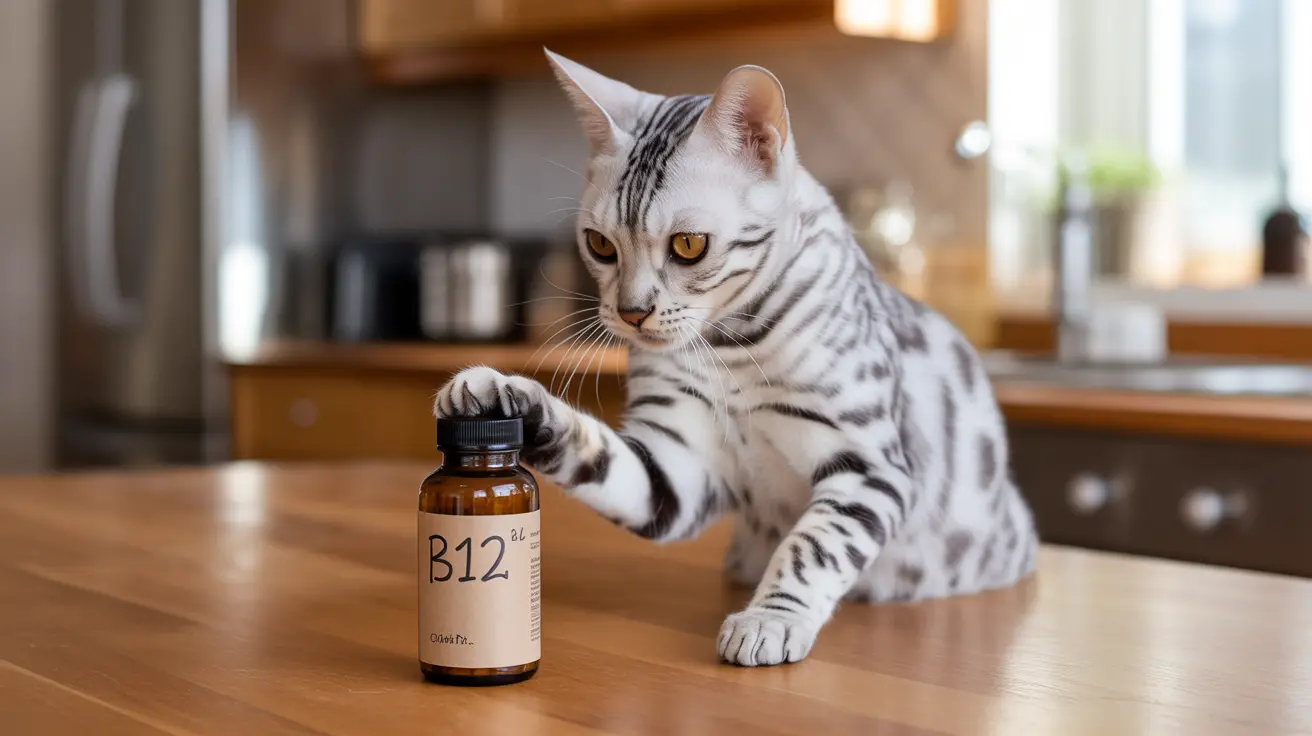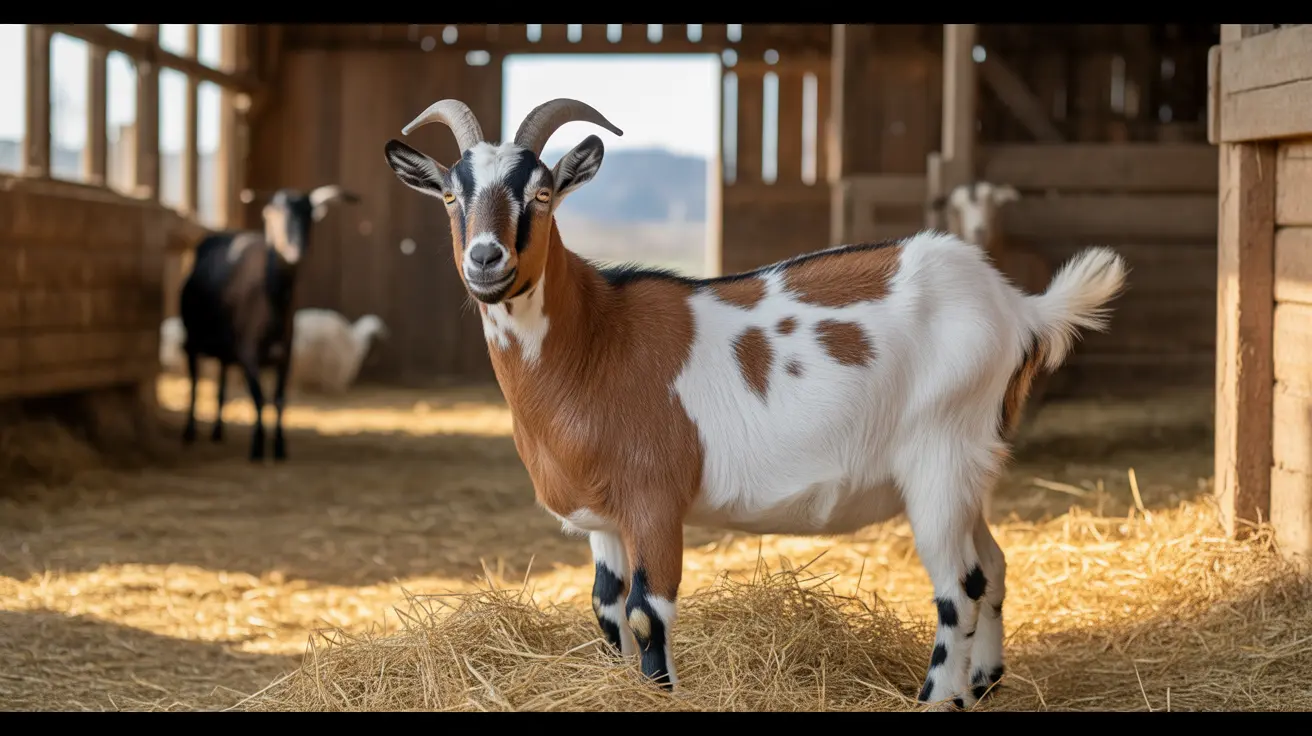If you're a cat owner, understanding the importance of vitamin B12 for your feline friend is crucial for maintaining their overall health and wellbeing. Also known as cobalamin, vitamin B12 plays a vital role in your cat's nervous system, immune function, and digestive health.
In this comprehensive guide, we'll explore why B12 is essential for cats, when supplementation might be necessary, and how to ensure your pet maintains optimal B12 levels for their health and happiness.
Understanding Vitamin B12's Role in Feline Health
Vitamin B12 is a crucial nutrient that supports multiple bodily functions in cats. It's essential for maintaining healthy metabolism, supporting proper nerve function, and ensuring efficient red blood cell production. Unlike some other nutrients, cats cannot produce B12 on their own and must obtain it through their diet.
The primary source of B12 for cats comes from animal-based proteins, which is why quality commercial cat foods typically contain adequate amounts of this vital nutrient. However, certain conditions can affect how well your cat absorbs and utilizes B12, potentially leading to deficiency.
Signs of B12 Deficiency in Cats
Recognizing the symptoms of B12 deficiency early can help prevent more serious health complications. Common signs include:
- Lethargy and weakness
- Loss of appetite
- Weight loss
- Digestive issues (vomiting, diarrhea)
- Poor coat condition
- Behavioral changes
- Neurological symptoms in severe cases
When Do Cats Need B12 Supplements?
Several conditions and circumstances may necessitate B12 supplementation in cats:
Medical Conditions
Cats with certain health issues are more likely to need B12 supplements, including those with:
- Inflammatory bowel disease (IBD)
- Pancreatitis
- Intestinal lymphoma
- Chronic gastrointestinal disorders
- Feline infectious peritonitis (FIP)
Age-Related Factors
Some cats may require supplementation based on their age or life stage:
- Senior cats with decreased absorption capacity
- Kittens with developmental issues
- Cats recovering from serious illness
Supplementation Methods and Administration
B12 can be administered to cats in several ways:
- Injectable supplements (most common for severe deficiency)
- Oral supplements (tablets or liquid)
- B12-fortified prescription diets
The method of administration will depend on your cat's specific condition and your veterinarian's recommendation. Injectable B12 is often preferred as it bypasses the digestive system, ensuring better absorption.
Ensuring Proper B12 Intake Through Diet
For healthy cats, maintaining adequate B12 levels can often be achieved through proper nutrition:
- Feed high-quality commercial cat food
- Include animal-based protein sources
- Consider supplements only under veterinary guidance
- Monitor food intake and weight regularly
Frequently Asked Questions
Why is vitamin B12 important for my cat's health, and what are the signs of deficiency?
Vitamin B12 is crucial for cats' nervous system function, red blood cell formation, and digestive health. Signs of deficiency include lethargy, poor appetite, weight loss, digestive issues, and in severe cases, neurological symptoms.
How do I diagnose and treat vitamin B12 deficiency in cats?
Diagnosis requires veterinary blood testing to confirm B12 levels. Treatment typically involves B12 supplementation through injections or oral supplements, along with addressing any underlying health conditions.
Can I give my cat vitamin B12 supplements at home, or should I consult a veterinarian?
Always consult a veterinarian before starting B12 supplementation. While B12 is generally safe, proper dosing and administration methods should be determined by a professional based on your cat's specific needs.
What are the best ways to ensure my cat is getting enough vitamin B12 from their diet?
Feed a balanced, high-quality commercial cat food containing animal-based proteins. If your cat has specific health conditions, follow your veterinarian's dietary recommendations and supplementation protocol.
Are there any risks or side effects associated with vitamin B12 supplementation in cats?
B12 supplementation is generally very safe, with minimal risk of overdose as excess is excreted in urine. However, proper dosing is important, and any supplementation should be monitored by a veterinarian.
Conclusion
While most healthy cats get sufficient B12 from their diet, understanding when and why supplementation might be necessary is crucial for responsible pet care. If you notice any signs of potential B12 deficiency in your cat, consult with your veterinarian for proper diagnosis and treatment options.






